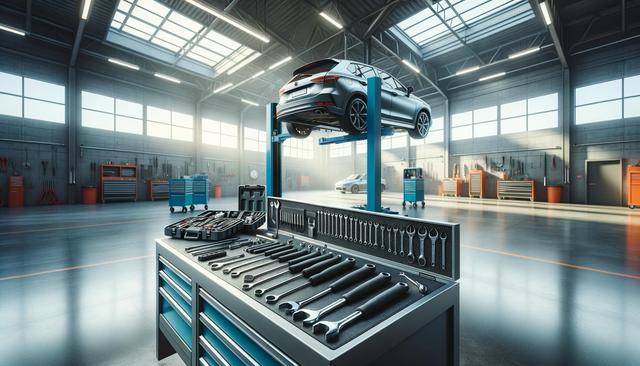Why Choose Mechanic Training in the USA?
The United States offers a wide range of mechanic training programs that cater to aspiring automotive professionals. These programs are designed to provide both theoretical knowledge and hands-on experience, ensuring that students are well-prepared for real-world challenges. Choosing to pursue mechanic training in the USA means gaining access to state-of-the-art workshops, experienced instructors, and a curriculum that aligns with current industry standards. This combination makes the USA a practical and rewarding place to start your journey in the automotive repair field.
Students benefit from structured learning environments with access to tools and diagnostic equipment commonly used in today’s garages. Many training centers also offer partnerships with local auto shops, giving learners the opportunity to gain on-the-job experience during their studies. This practical exposure is invaluable and often leads to job placements right after graduation. Additionally, some programs offer specialized training in areas such as diesel engines, hybrid systems, or advanced diagnostics, allowing students to tailor their education to their interests.
What to Expect from a Mechanic Training Program
Mechanic training programs in the USA typically include a blend of classroom instruction and practical workshops. Courses usually begin with foundational topics such as engine systems, brake systems, and basic vehicle diagnostics. Over time, students advance to more complex subjects like computerized engine control, emissions systems, and suspension technologies. These programs also emphasize safety protocols and proper use of tools and machinery, ensuring that students develop responsible work habits.
Here’s what a typical training program might include:
- Engine performance and repair
- Electrical systems and diagnostics
- Brake and suspension systems
- Automatic and manual transmissions
- Service writing and customer communication
Most programs can be completed within 6 to 24 months, depending on the certificate or degree level. Some institutions offer accelerated programs for those with prior experience, while others include internship opportunities to help build professional networks. By the end of the program, students are often eligible to take certification exams that enhance employability and validate their skills.
Career Opportunities After Training
Completing a mechanic training program opens the door to a range of career paths in the automotive industry. Graduates can find employment in dealerships, independent repair shops, fleet maintenance companies, and even specialty garages focused on high-performance or electric vehicles. The demand for skilled mechanics remains steady, especially as vehicles become increasingly complex and reliant on technology.
Mechanics with formal training often enjoy advantages such as:
- Higher starting salaries
- Faster career advancement
- Opportunities to specialize in specific vehicle systems
- Strong job stability due to consistent demand
In addition to traditional roles, some mechanics choose to become service advisors, shop managers, or even open their own repair businesses. With experience and ongoing education, these professionals can move into supervisory or technical consultant positions, offering further career growth and stability.
Certifications and Continuing Education
While a mechanic training program provides a solid foundation, obtaining professional certifications can further enhance a technician’s credentials. In the USA, certifications from recognized organizations demonstrate a mechanic’s commitment to quality and expertise. Many employers prefer or even require certification when hiring for advanced positions.
Common certifications include:
- Automobile Service Excellence (ASE) Certification
- EPA 609 Certification for refrigerant handling
- Manufacturer-specific certifications
Continuing education is also important in this field. As vehicle technology evolves, technicians must stay updated on new systems such as hybrid drivetrains, electric vehicle platforms, and advanced driver assistance systems (ADAS). Many training institutions offer refresher courses and advanced training modules to help mechanics stay competitive in the job market. These options not only support career longevity but also ensure that technicians can work on the latest vehicle models with confidence.
How to Get Started
If you’re ready to begin a career as a mechanic, the first step is choosing the right training program. Start by researching accredited institutions in your area or those offering online and hybrid learning options. Consider factors such as tuition costs, program duration, hands-on training facilities, and job placement support. Many schools also offer financial aid, scholarships, or payment plans to make education more accessible.
Once enrolled, take advantage of networking opportunities and stay engaged in your studies. Joining professional organizations and attending automotive trade shows can also help you stay informed about industry trends and expand your professional contacts. Remember, becoming a skilled mechanic is not just about turning wrenches—it’s about problem-solving, lifelong learning, and delivering reliable service to customers.
With dedication and the right training, you can build a rewarding career in an essential and ever-evolving field.
Conclusion: A Practical Path to a Stable Career
Pursuing mechanic training in the USA is a meaningful step toward a stable and fulfilling career. The combination of technical skills, hands-on experience, and industry-relevant education provides a strong foundation for long-term success. Whether you’re interested in working with traditional vehicles or cutting-edge electric models, mechanic training equips you with the tools needed to adapt and grow. With a consistent demand for skilled workers, this career path offers not only job security but also opportunities for specialization and advancement. If you’re ready to turn your interest in automotive systems into a professional skill set, enrolling in a mechanic training program could be the right move for your future.




Leave a Reply